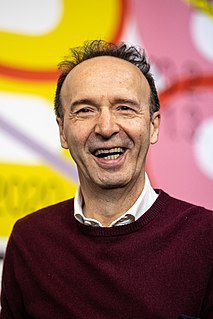A Quote by Wallace Stevens
The final belief is to believe in a fiction, which you know to be a fiction, there being nothing else. The exquisite truth is to know that it is a fiction and that you believe in it willingly.
Related Quotes
I don't believe that fiction is dead. I know there are some people who believe that it's an outdated art form, and that to express truth today you need to work in different forms, to write books where it's perhaps not clear what's fiction and what's memoir. I have nothing against those books and love many of them very much. But we have enough space for everyone, traditional realists and hybrid writers, and experimental writers all.
I would say that most of my books are contemporary realistic fiction... a couple, maybe three, fall into the 'historic fiction' category. Science fiction is not a favorite genre of mine, though I have greatly enjoyed some of the work of Ursula LeGuin. I haven't read much science fiction so I don't know other sci-fi authors.
It had also been my belief since I started writing fiction that science fiction is never really about the future. When science fiction is old, you can only read it as being pretty much about the moment in which it was written. But it seemed to me that the toolkit that science fiction had given me when I started working had become the toolkit of a kind of literary naturalism that could be applied to an inherently incredible present.
With fiction, you are creating an imaginary world. And it can be a very mechanical process. In a fictional film, you create the characters who become "real people" when facing the camera. When you stop shooting, they change their costumes and become someone else. And people tend to believe in documentary more than fiction. Even if the fiction is based on a true story, everybody will say, "Oh, they're only actors."
Truth is not only stranger than fiction, it is more telling. To know that a thing actually happened gives it a poignancy, touches a chord, which a piece of acknowledged fiction misses. It is to touch this chord that some authors have done everything they could to give you the impression that they are telling the plain truth.
Writing fiction is not a profession that leaves one well-disposed toward reading fiction. One starts out loving books and stories, and then one becomes jaded and increasingly hard to please. I read less and less fiction these days, finding the buzz and the joy I used to get from fiction in ever stranger works of non-fiction, or poetry.







































